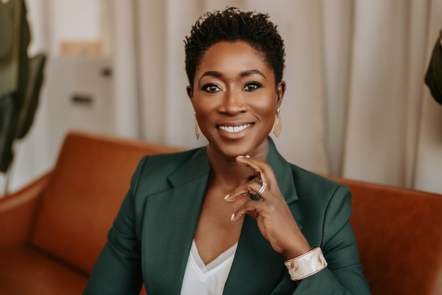Dr. David Feinberg, chairman of Oracle Health, explores the transformative power AI can provide the health care industry, and why it’s time to embrace it, or be left behind.
It’s not a matter of if, but when. That’s Dr. David Feinberg’s belief on the integral role AI will play in the future of health care. But adopting the technology isn’t enough, Feinberg claims; health care workers need to truly understand how to use it effectively to achieve better outcomes, from predictive diagnostics to automating mundane tasks, freeing clinicians to focus on patient care.
“AI is not going to replace radiologists, but radiologists that do not embrace AI will be replaced,” Feinberg shares. “I don’t think medical students need to know how to code, but I think they certainly need to know how to interact with this powerful technology. It’s now at our fingertips.”
Oracle Health is building an open health care platform with intelligent tools for data-driven, human-centric health care experiences to connect consumers, health care providers, payers and public health organizations. This innovation not only eliminates the tedious data entry that has plagued clinicians for decades but also enhances accuracy and efficiency.
By incorporating features like ambient listening and real-time data capture, Oracle Health’s aims to make interactions between patient and provider seamless. One of their main missions is to tackle the inefficiencies of electronic health records (EHRs). Feinberg describes how their new EHR system leverages AI to allow clinicians to focus entirely on their patients.
“With AI, we pull in data from literally thousands of sources. So not only multiple EHRs, but social determining data sets,” Feinberg explains. “Think of it as an immense student summary, and it’s captured some very important social information. So in the visit, you’re not at the computer, you’re talking to the patient.”
The AI doesn’t just help with prepping for a patient visit, it can be utilized during and after each consultation to reduce the burden on clinicians. “You go in the room with the patient’s permission, and the ambient listening captures everything that’s happening in the visit,” he says. “You can even interrupt and say, ‘Hey, Oracle, what are these patients? Hemoglobin A1C?’ So you can interact with the record using your voice.”
The real “magic” though is revealed after the patient visits. “When you’re all done, the notes are done, the coding’s done, the prescription’s done, scheduling of the patient is done,” Feinberg reveals. “You never take your eyes off the patient.”
As Feinberg notes, the impact is so profound that many clinicians may feel less burnout due to the reduced burden. “It’s game changing to where folks are saying, ‘I was going to retire and now I’m not going to. It’s that powerful.”
As technology like AI reshapes the health care landscape, Feinberg also highlights the need for a paradigm shift in medical training.
“What are the right prompts to get me the right information? How do I use these very powerful tools in a way that promotes care and does not exacerbate bias?” he asks, stressing that future clinicians must learn to collaborate effectively with AI, rather than focus solely on rote memorization.
This shift could potentially shorten the time it takes to train medical professionals while improving the quality of care. By focusing on the human-computer interface, medical students can be better equipped to navigate the complexities of modern health care.
“Using data, I think we have a real opportunity to make some fundamental changes. I think it will decrease the cost and the waste and the misdiagnosis,” he explains. “If we spend less on healthcare, that will give us more opportunity to build roads in schools and increase wages.”
Feinberg acknowledges one of the challenges with AI is an inherent bias, emphasizing the need for transparency about how AI tools are trained. “The tool has to come with a user manual that says, ‘This AI was trained on a dataset like this.’ So if you’re using it in that population, great. If you’re not, be very careful,” he shares.
Their proactive approach ensures that AI tools are used appropriately and equitably across diverse populations. By leveraging data from Oracle’s extensive and diverse network, Feinberg envisions a future where AI tools are trained on datasets that reflect the full spectrum of patient demographics, reducing disparities in health care outcomes.
Feinberg’s aspirations extend beyond improving technology. He envisions a health care system where data-driven insights and cutting-edge tools create a more equitable and accessible landscape. “The thing that really drives me is, can we make health care more accessible, understandable, and equitable?” he said.
His vision includes not only addressing immediate clinical needs but also tackling systemic issues like rising healthcare costs and social determinants of health. Feinberg explains that clinicians, for example, could receive real-time insights about food insecurity or transportation challenges affecting a specific patient, allowing them to create tailored interventions that go beyond clinical care to address some of the root causes of poor health outcomes.
“We call it our health data intelligence,” he says. “We could look at a population level of information and say, here’s the food desert, or here’s the area where it looks like we have lower vaccination rates. And not only that, if we’re going to do an outreach or a campaign, do we have the right resources and the right staffing to do that campaign in that region?”
“We brought in that social determinant in workflow in a way that would make your work easier and obviously it’s better for the patient. So that technology arc, we think, is very important in driving better outcomes in that case for a patient.”
Recently, Oracle Health relocated their headquarters to Nashville. “We see it as obviously representing Nashville, representing oftentimes the underserved, representing kind of the future of healthcare healers. And we want to do that at scale.”
This philosophy underscores Oracle Health’s commitment to empowering health care providers without losing sight of the human element. By collaborating with community organizations and other stakeholders, Oracle seeks to create scalable solutions that prioritize patient well-being.
“Health care is people caring for people, and it’s built on trust,” he shares. “We are simply the technology provider that allows those people to provide better care.”
Be sure to follow Public Service Announcement with Dr. James E.K. Hildreth on Apple, Spotify, YouTube, or wherever you get your favorite podcasts. For more content like this, join the conversation online at mmc.edu/podcast.



